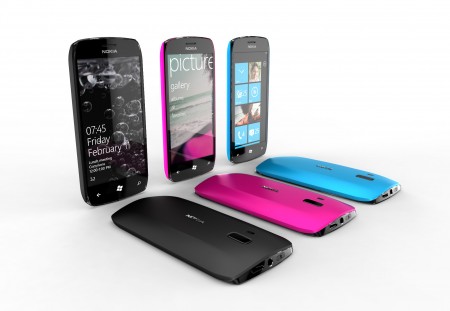Understanding Nokia’s smartphone strategy.
Advertisements
Rafe Blandford, I tip my hat to you sir. In what must be the longest, most comprehensive summary and analysis of the recent switch in strategy by Nokia, Rafe has covered (very well I must say) a number of the issues raised both here, and by Nokia themselves in their interviews and Q&A sessions on the reasons for their switch to the current smartphone strategy as well as issues precluding their ability to stick to their former strategy.
A summary of Rafe’s epic editorial is below while a link to the full article can be found at the source link.
- Nokia’s smartphone strategy is a profound change for the company, marking the end of an era.
- A strategy change became necessary in the face of declining market share, caused by intense competition from its rivals in the smartphone space.
- Nokia’s current situation is not untenable, but the concern is what the situation will be like in two or three year if no changes are made. Big strategy changes are not about the now, but about the next.
- The thinking behind the decision is based on Nokia CEO Stephen Elop’s contention that “the battle of devices has now become a war of ecosystems”.
- The cost of porting Symbian to new hardware and developing the next generation of the platform limited the effective life of Symbian. Nokia had already realised this and was positioning MeeGo as a successor.
- Qt is an elegant cross platform development framework, but its existence, in the mobile space, is largely tied to MeeGo and Symbian.
- MeeGo is not yet ready yet. The risks involved in Nokia waiting for MeeGo to be ready are perceived to be greater than switching to another platform.
- Nokia correctly foresaw the need for a surrounding ecosystem, but has struggled to fully implement its Ovi vision and, as a result, it now has a perception problem.
- It is becoming difficult for one company to do everything (hardware design, manufacturing, operating system, applications, developers, location content services, advertising, etc.) as the competencies involved in building a competitive grow ever broader.
- Android was always an unlikely option because the business case justification was weak.
- Windows Phone offers a modern UX with good underlying technology. However it has significant holes in its feature set that will need to be addressed.
- The agreement with Microsoft and the use Windows Phone allows Nokia to differentiate its devices from its main Android and iOS powered rivals.
- Nokia and Microsoft are well positioned to jointly build a viable and competitive mobile ecosystem in which both companies have a near-equal equity stake.
- Nokia decision to switch to Windows Phone was primarily driven by the need for a competitive, viable and sustainable ecosystem, rather than any concerns with the underlying technology (operating system).
Advertisements
Category: Nokia






Connect
Connect with us on the following social media platforms.